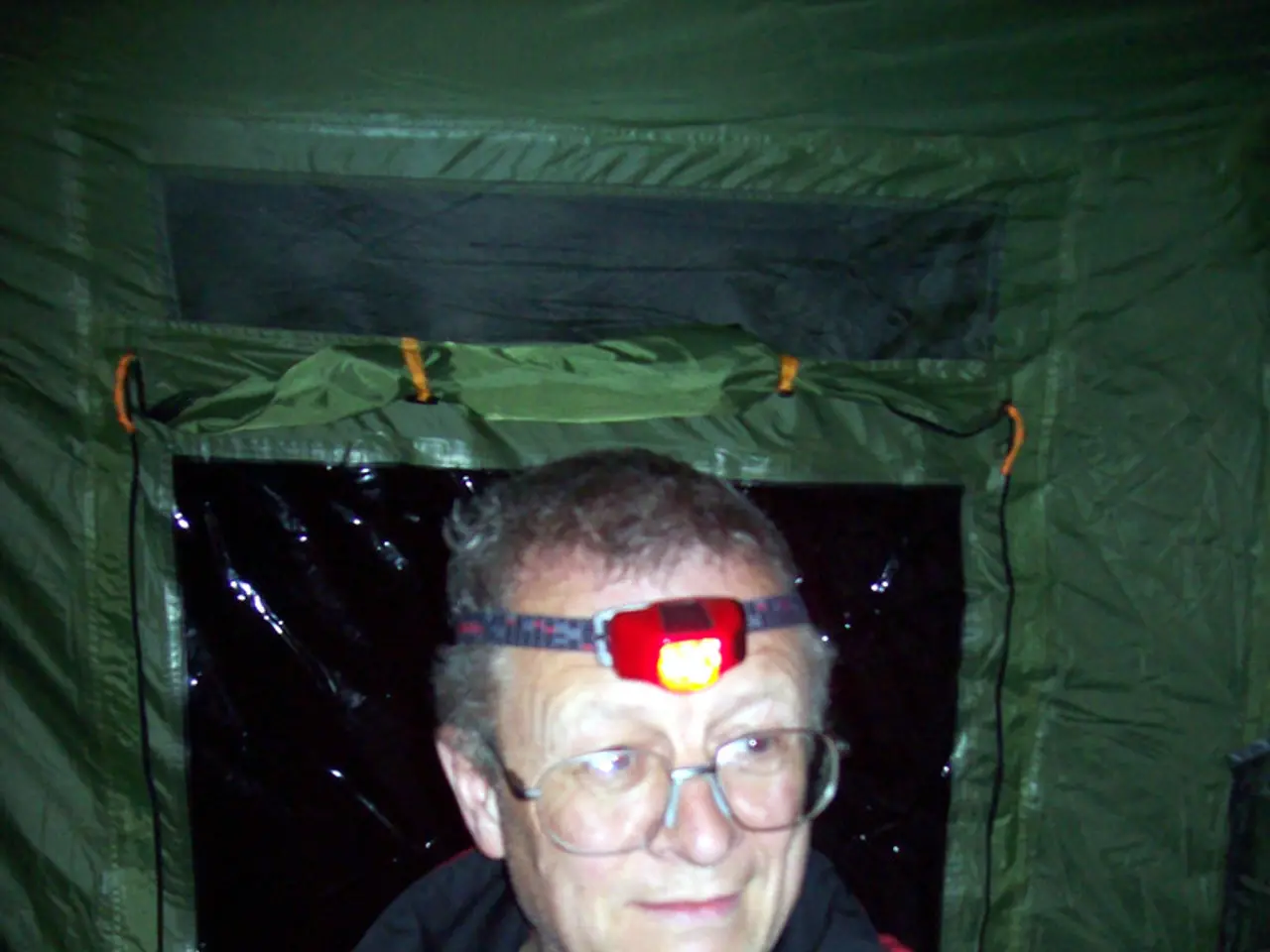Safety Guidelines for Senior Citizens During Summer
As the summer season approaches, it's essential to take extra precautions to protect the elderly from heat-related illnesses. August is observed as Summer Sun Safety Month, a reminder for everyone to prioritise their safety and health in the hot summer sun.
1. **Stay Hydrated** - Drink plenty of water throughout the day, aiming for at least 6–8 glasses. - Avoid sugary drinks, caffeine, and alcohol as they can lead to dehydration. - Incorporate fruits with high water content, such as watermelon and cucumbers, into your diet.
2. **Dress for the Weather** - Wear light-colored, loose-fitting clothing made of breathable fabrics like cotton or linen. - Use wide-brimmed hats and sunglasses with UV protection to shield your face and eyes from the sun.
3. **Avoid Peak Heat Hours** - Stay indoors or seek shade between 10 a.m. and 4 p.m. when possible. - Schedule outdoor activities for early morning or late evening to avoid the hottest part of the day.
4. **Use Sunscreen Properly** - Apply broad-spectrum SPF 30+ sunscreen at least 15 minutes before going outside. - Reapply sunscreen every two hours or after swimming or sweating.
5. **Monitor Health** - Be aware of the signs of heat stroke and heat exhaustion, such as dizziness, confusion, and rapid pulse. - Seek medical help immediately if symptoms occur.
6. **Stay Cool** - Use air conditioning if available. - Enjoy cold foods and drinks. - Avoid exercising during peak heat hours.
7. **Social Support** - Encourage seniors to stay connected with friends and family. - Regular check-ins can help ensure they are following safety tips and are not isolated.
These tips can help seniors enjoy the summer season while protecting their health from heat-related dangers. It's important to remember that elderly individuals often struggle to regulate their body temperature effectively due to factors such as medications, natural aging, and chronic health conditions.
Heat syncope occurs when elevated temperatures lead to fainting and can be alleviated by lying down, cooling off, and hydrating. Dehydration is a common problem for seniors during the summer heat, as their sense of thirst often diminishes with age. In case of heat stroke, it is crucial to call 911, hydrate, move to a cool place with shade, remove heavy clothing, and place cool, soaked cloths on the neck, armpits, wrists, and ankles to help lower the body temperature.
Seniors should wear light colors and avoid darker-colored garments as they tend to absorb heat. They should also avoid being outside between 10 am and 4 pm when the sun is the hottest. Prolonged exposure to heat increases the risk of heat exhaustion, a more serious condition than dehydration that occurs when an individual overheats, causing symptoms such as lack of sweating, weakness, headaches, and dizziness.
Heat stroke is a severe consequence of untreated heat exhaustion and can be fatal in seniors. Signs of heat stroke include a body temperature of at least 104°F, rapid pulse, nausea, fainting, and headaches. Seniors should prioritise drinking plenty of water to maintain their hydration levels and limit their time outside during summer months to avoid heat-related health issues.
Maintaining a cool environment indoors, by using air conditioning or fans, and keeping windows covered during the day can help seniors stay safe during the summer. Seniors should wear sunscreen with a sun protection factor (SPF) of at least 15 while outside. To prevent dehydration, seniors should consume plenty of fluids, particularly those rich in electrolytes. Alcohol and caffeine should be avoided as they can lead to increased urination and greater water loss.
Professional elderly care services can provide assistance to seniors during the summer months to ensure their safety and hydration. By following these essential summer safety tips, seniors can enjoy the summer season while minimising the risks of heat-related illnesses.
- Enhance Home Environment - For homebound seniors, ensure proper ventilation and circulation by opening windows (in cooler hours) and adjusting air conditioners.
- Health-and-Wellness Subscription Boxes - Consider subscribing to a health and wellness box that includes sunscreen, water bottles, cooling towels, and other summer-safe items for seniors.
- Healthy Meal Preparation - Prepare nutrient-rich, easy-to-eat meals for seniors to provide necessary energy and hydration. - Use the slow cooker or microwave to minimize cooking time and heat.
- Home Care Assistance - Hire licensed caregivers to help with light housekeeping, grocery shopping, and meal preparation during the summer months, ensuring regular check-ins and safety measures are followed.
- Personal Care - Seniors should maintain regular personal care routines, including skin care, dental hygiene, and personal grooming to help maintain their overall health and well-being.
- Fitness-and-Exercise Activities - Encourage seniors to engage in gentle exercises, such as yoga or tai chi, that can be adapted for unique needs. - These activities can improve mobility, reduce stress, and increase energy levels.
- Industry and Environmental Initiatives - Advocate for industry and environmental initiatives aimed at reducing climate change, as excessive heatwaves may become more frequent.
- Mental-Health Focus - Remember the importance of mental health during the summer months. - Address concerns about the pandemic, isolation, and financial worries through therapy, support groups, or open conversations with friends and family.




